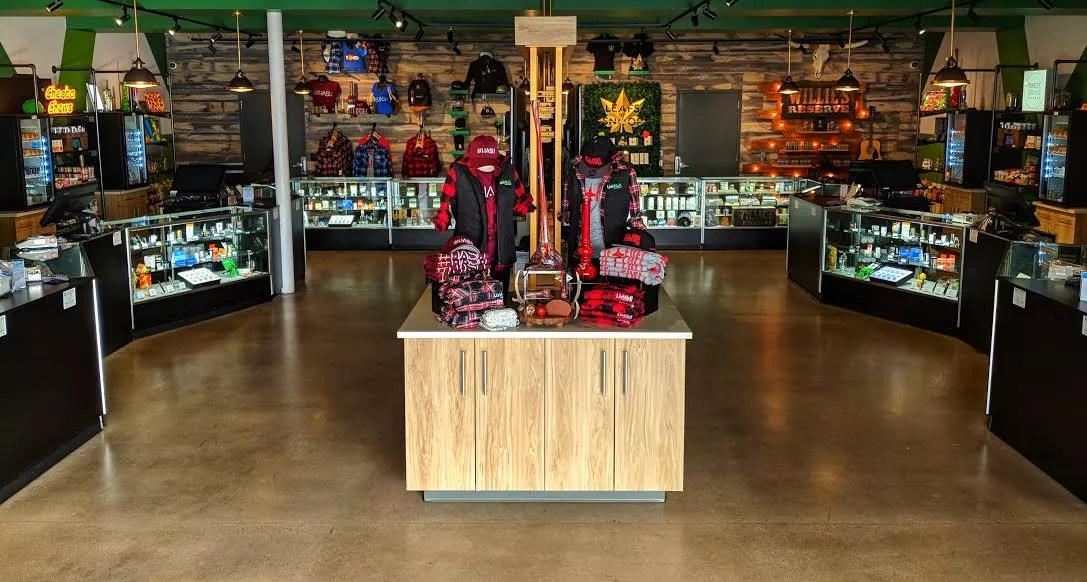
Courtesy of LivWell

Audio By Carbonatix
Since legal sales of recreational cannabis started in Colorado on January 1, 2014, some potrepreneurs have done very well. As owner of LivWell Enlightened Health, one of the state’s (and country’s) largest dispensary chains, John Lord looks up to few in the world of legal cannabis.
The New Zealand native has guided the growth of his company to include fourteen Colorado pot shops, as well as a dispensary in Oregon and partnerships in Canada’s emerging legal market. The first licensed pot business to feature Snoop Dogg’s branded cannabis line, LivWell is no stranger to putting itself out there, so we hit up Lord to see what his team has been up to.
Westword: You’re from New Zealand. How does the culture around cannabis differ there compared to Colorado?
John Lord: While it looks like the people of New Zealand may get a chance to vote for cannabis legalization in the next year or two, right now the culture around cannabis there largely resembles what it was like here in Colorado before legalization. Cannabis consumption has long been part of society, just as it has been in the U.S., but consumers are currently stigmatized and criminalized. In both New Zealand and America, there remains significant misinformation regarding the actual facts surrounding cannabis. And just like we experienced here in Colorado, there is a growing groundswell of people who are no longer buying that. More and more Kiwis are determined to achieve cannabis legalization so that their communities can reap the many benefits that we have seen here in Colorado: patients with access to the medicine they need, criminals losing market share to legitimate business, local governments collecting taxes that benefit the community, economic opportunities for Kiwis, and so much more.
How has Colorado’s cannabis industry changed since 2014, when recreational sales began?
It may have only been four years ago, but the cannabis industry has evolved in numerous ways since 2014. When recreational sales first began, both the Marijuana Enforcement Division and cannabis entrepreneurs were still learning how to handle the emergence of this brand-new industry. On the regulatory side, we saw new rules and regulations being promulgated at a furious pace. In 2015, for example, there were approximately 150 new or revised cannabis regulations. … That means we had a new rule to follow, on average, every 2.5 days. Clearly that pace was unsustainable, and since then, the regulators and elected officials have worked with industry representatives to build a robust regulatory regime. Thanks to these efforts, Colorado is now a model for other states looking to build effective legal cannabis systems.
On the industry side, we have become increasingly sophisticated in terms of high-quality production, retail design, product innovation and involvement in our local communities. Whereas before 2014, most cannabis companies had limited business experience to draw upon and were restricted in terms of the third-party vendors with which we could work, today we operate in the most mature cannabis market in the world, complete with an ecosystem of ancillary businesses that have helped us grow and improve. Cannabis companies in Colorado have learned to cooperate more with one another for the overall improvement of our industry, and we have become more involved in supporting the communities in which we operate through volunteer and philanthropic efforts across the state. In 2014, Colorado was a pioneer in the cannabis industry. Today Colorado is the clear national leader from which all other states and cannabis companies strive to learn.

Inside one of LivWell’s fourteen Colorado locations.
Courtesy of LivWell
Other than the whole federal prohibition thing, what are some challenges that legal cannabis expansion faces in America?
The restrictions we face due to 280E taxation and the continued difficulties companies have getting access to banking services are the two greatest challenges legal cannabis expansion faces in America. Paying upwards of an 80 percent effective federal tax rate is simply not sustainable for any business in the long run, as I’m sure any reasonable person would agree. In the new markets just opening up, from California to Michigan and beyond, a whole new crop of cannabis entrepreneurs is suddenly running headlong into this anachronism in our tax code and wondering how they can possibly make their dreams for a legal cannabis business work.
Similarly, the difficulty many cannabis businesses face when it comes to banking services limits our growth and presents a serious problem for public safety. Currently, cannabis companies not only have to operate in cash, as credit-card processors refuse to work with us, but most are unable to deposit that cash with a banking institution. Both of these issues increase the risk of theft and non-compliance, inhibit growth, and limit the ability of local governments to effectively track and tax the businesses under their purview. In order for legal cannabis to work in the long run, we need federal action that allows cannabis companies to operate just like any other business in any other industry. We are hopeful that federal officials recognize this problem, and fortunately it would seem more and more of them do. One need look no further than our own Senator Cory Gardner and the leadership he has been providing on these issues at the federal level.
And what about Colorado’s industry, specifically?
As the most mature cannabis market in the country, Colorado has not only led the way in terms of developing effective, common-sense regulations and building a sophisticated, responsible industry, but we have also been among the first to experience the numerous consequences of legalization. While the experience has been overwhelmingly positive in my view, there are of course problem areas we must continue paying attention to. First, the existence of criminal- and gray-market operators who use legalization as a cover for their illicit activities is something no one in the legal cannabis industry wants to see, and we will continue to work with policy-makers and law enforcement to curtail gray-market and black-market criminal activity as we have in the past. Second, while the most recent research indicates that we are not seeing the hyperbolic predictions of prohibitionists come to pass, we must continue and increase our efforts to educate the public about responsible cannabis use.
LivWell recently announced a partnership with Canadian cannabis production company 51st Parallel. How do you see Canada’s legal system comparing to Colorado’s?
With Canada looking to legalize cannabis at a national level, the Canadian market will differ in significant ways from Colorado. First and most important, Canadian cannabis companies will avoid many of the challenges Colorado cannabis companies face, namely 280E taxation, limits on banking and an uncertain policy environment in which to do business. The Canadian market will also potentially be much larger, given the continued restrictions on interstate commerce for cannabis in America. In Canada, the market could be six to seven times as large. Also, Canada is likely to create a different kind of regulatory system than what we have in Colorado, if only because they will have places like Colorado to learn from. Already, we can see there will be some differences with regard to how products are produced and marketed, so we’ll see what other changes they have in store.
Are there any other countries (or states in the U.S.) that could become a destination point for LivWell in the future?
Stay tuned!
Where do you see Colorado cannabis in five years?
In this industry, we live in dog years. Five years is longer than we’ve had an adult-use market. It’s impossible to predict what will happen next year, much less five years from now. That being said, I expect that the industry will continue to mature, professionalize, and be a vital part of Colorado’s economy and culture. And I expect LivWell Enlightened Health to continue to help lead the way!